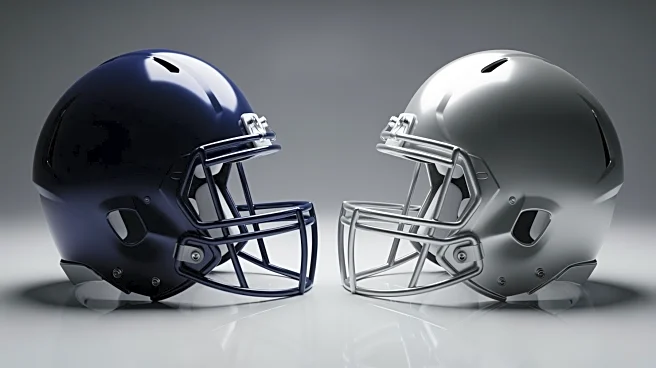What's Happening?
The Tennessee Titans reportedly refused to engage in trade negotiations with the New England Patriots due to lingering tensions between Titans owner Amy Adams Strunk and former head coach Mike Vrabel. Vrabel, now leading the Patriots, parted ways with the Titans after
the 2023 season under contentious circumstances. Despite the Titans' willingness to trade players like cornerback Roger McCreary and pass rusher Dre'Mont Jones to other teams, they stonewalled the Patriots, who were seeking reinforcements to maintain their lead in the AFC East. The Patriots had aimed to acquire running back Tony Pollard from the Titans, but the trade did not materialize.
Why It's Important?
This refusal to trade highlights the impact of personal relationships and past disputes on professional sports decisions. The Titans' decision not to assist the Patriots could affect the Patriots' ability to strengthen their roster, potentially influencing their performance in the AFC East. For the Titans, this move reflects a focus on rebuilding and future planning, as they prioritize trades that align with their long-term goals. The situation underscores the complex dynamics within the NFL, where personal history can influence team strategies and decisions, affecting the competitive landscape.
What's Next?
The Patriots will need to explore other avenues to bolster their team as they aim to maintain their position in the AFC East. This may involve seeking trades with other teams or focusing on internal development to address their needs. The Titans, meanwhile, will continue their rebuilding efforts, potentially making additional trades that align with their future objectives. As the season progresses, both teams will need to navigate the implications of this trade refusal, adjusting their strategies to optimize performance and achieve their respective goals.
Beyond the Headlines
The Titans' refusal to trade with the Patriots due to personal disputes highlights the influence of non-sporting factors on team decisions. This situation may prompt discussions within the NFL about the role of personal relationships in professional sports, potentially leading to changes in how teams manage such dynamics. Additionally, the incident could affect the perception of team management and decision-making processes, influencing how teams approach trades and negotiations in the future.















